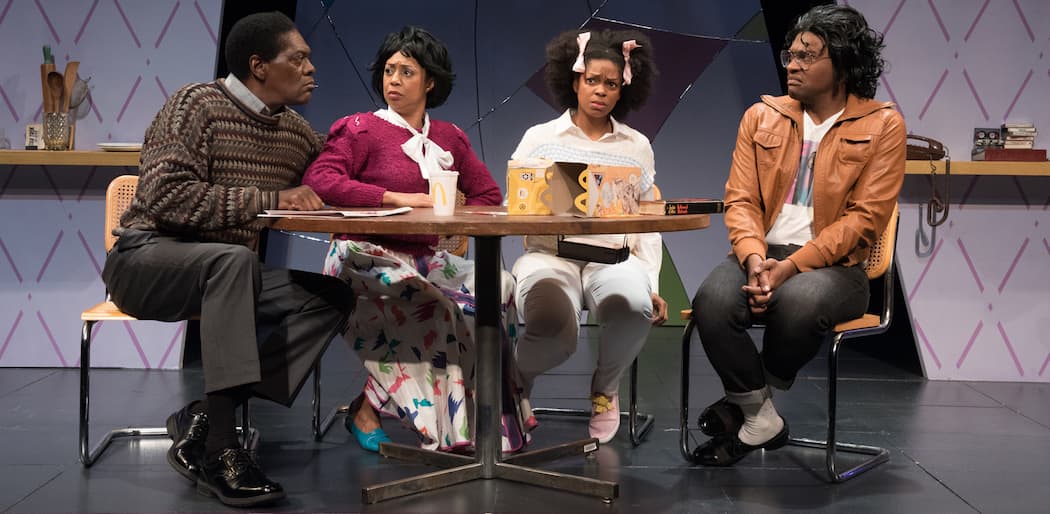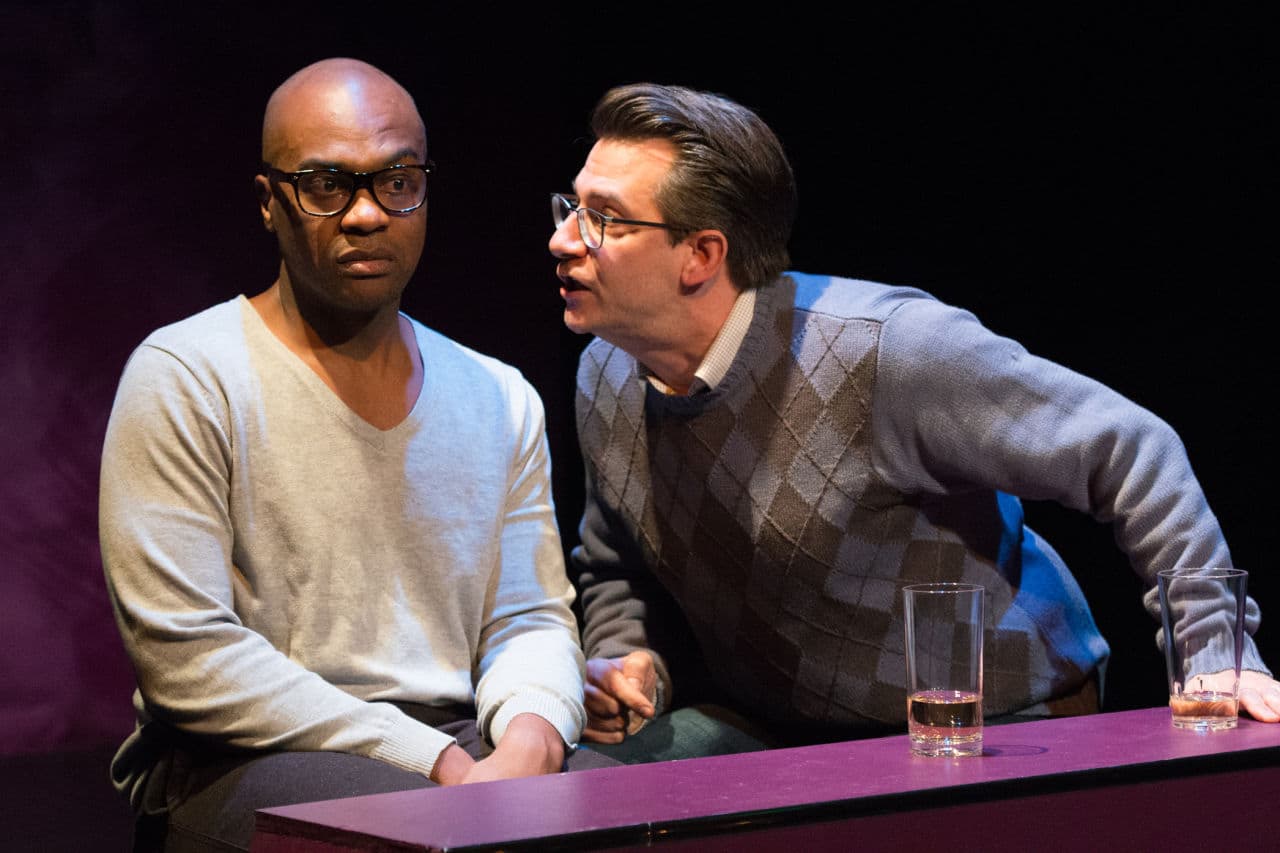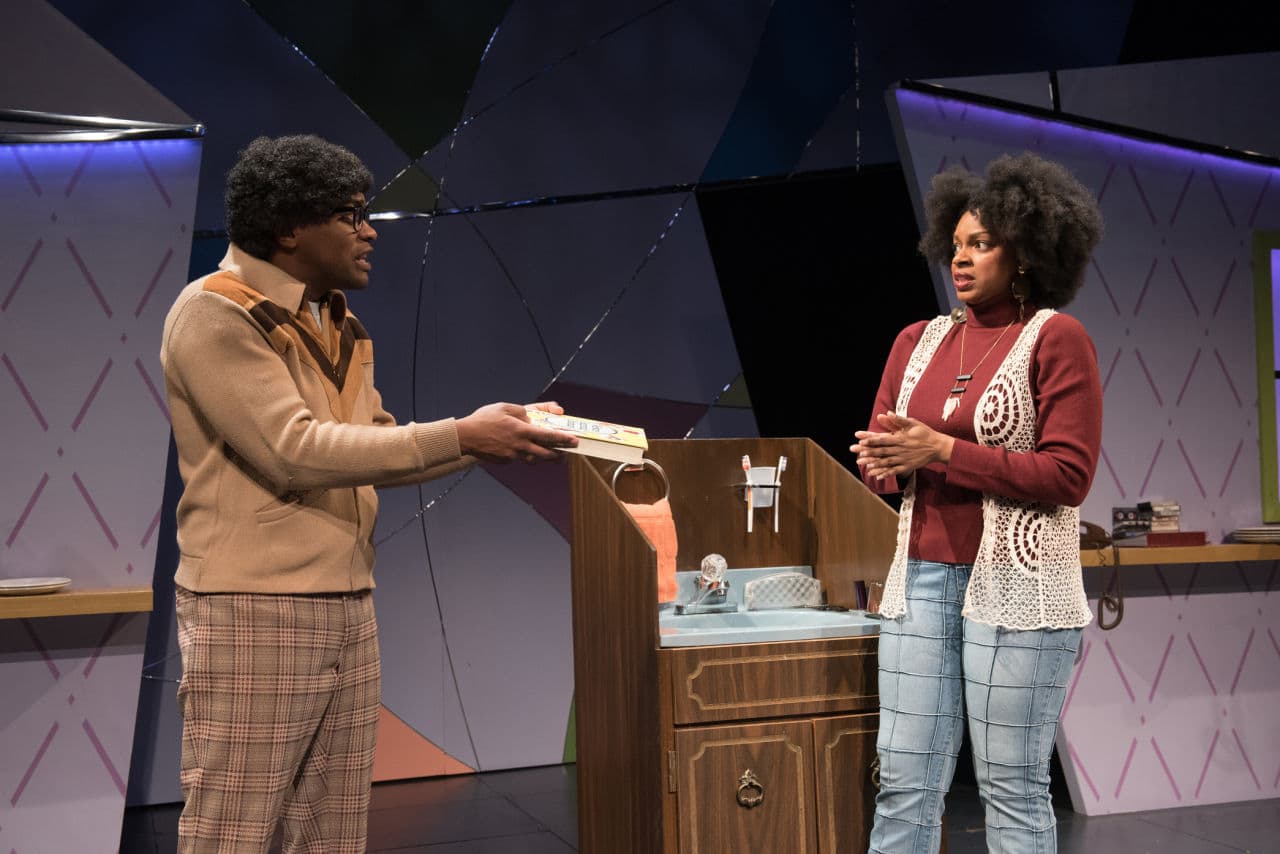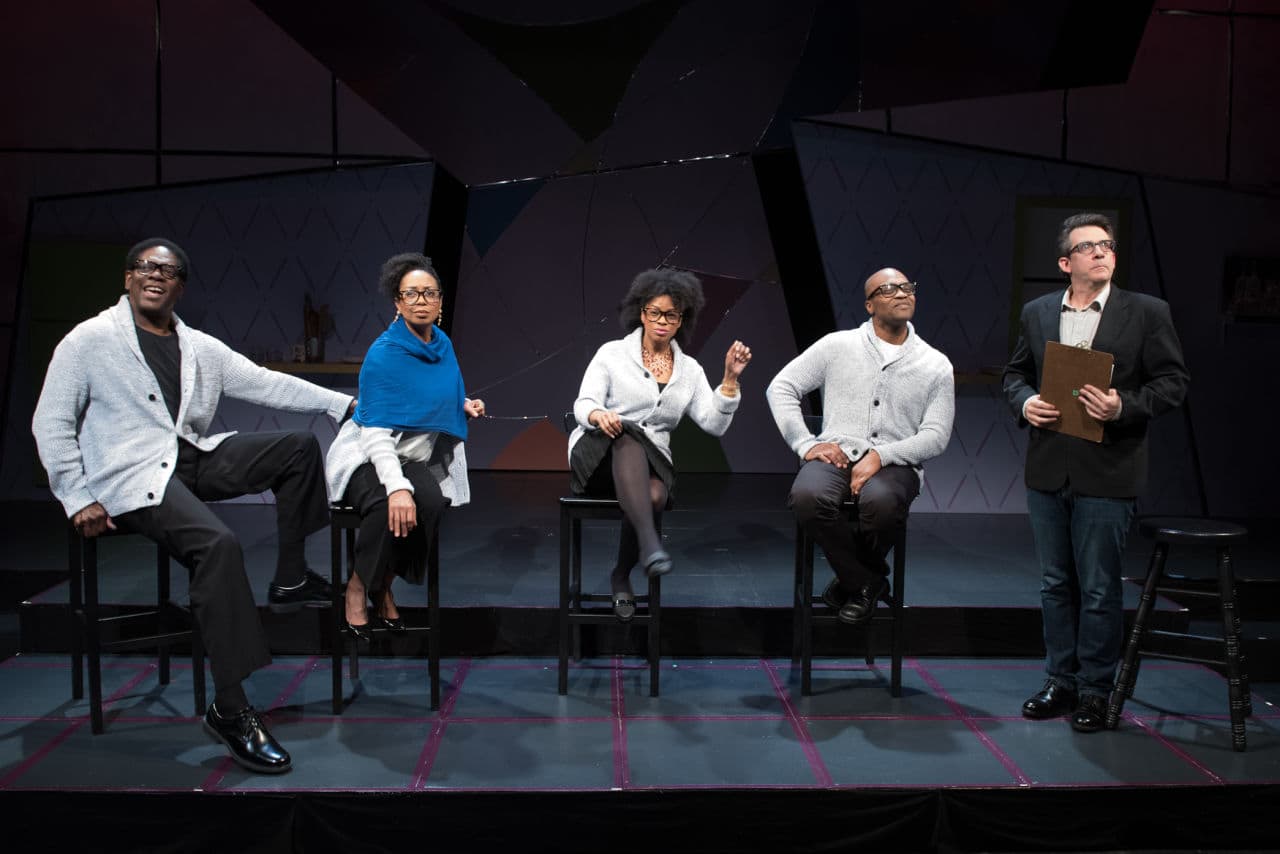Advertisement
SpeakEasy's 'Bootycandy' Finds Satire At Full Volume

There’s a level at which Robert O’Hara’s “Bootycandy” is deliberately, full-on silly. These 11 vignettes — some you might call mini-plays, others are more like sketch comedy — call for five actors to go big at almost every moment, playing scenes at their most amplified, broadly conceived iteration.
But there’s an air of menace that permeates all this, a dark undercurrent into which the theatergoer is invited to project his or her own fancies as to What It All Means. All told, the show, as seen in a SpeakEasy Stage Company production at the Calderwood Pavilion through April 9, is a mixed goody bag. It mostly passes itself off as filled with chocolate bars, but reach a little deeper and you’ll pull out an apple with a razor blade inside it.
In broad strokes (and the term is well-chosen), “Bootycandy” depicts various facets of American life living as a gay, black man in America. It’s also a general reminiscence about black life in the late ‘70s through sometime in the ‘90s, seen from the perspective of a child who is already confused enough about matters of the birds and bees without the complicating factor of homosexuality mixed in. As such, the scenes that seem to be placed in the earliest years, chronologically, feature adult characters who are particularly lacking in nuance, as if viewed from a child’s-eye-view.
There’s not so much a narrative thread here as a series of textural in-jokes, suggesting that some characters are viewed at different times in their lives. Central is Sutter (Maurice Emmanuel Parent), apparently a stand-in for playwright O’Hara -- though one of the play’s darker turns confronts directly the audience’s expectation for autobiography, and the license such an expectation does or does not grant. Parent plays Sutter as a young child learning a questionably appropriate nickname for his private parts, as a teenager complaining that a man keeps following him home and as an adult visiting his grandmother and hanging out in a pick-up bar. Along the way there is lots of adult language, plus graphic descriptions of sex acts and some full nudity for good measure.

The scene with Sutter as a teenager is “Bootycandy” in full flower. It’s quickly apparent to the audience that a sexual predator is stalking the boy. But his mother and his stepfather, played here by Jackie Davis and Johnny Lee Davenport, see the root problem as his lack of old-fashioned manliness. She looks for excuses to fuss and carry on, outraged that the boy would read Jackie Collins novels at the table; he barely looks up from his crossword puzzle. Meanwhile, Sutter is trying really hard to dress like Michael Jackson, adding to the boldfaced levity. Later, we find out that the predator is not yet finished with Sutter.
Laugh? Cry? Take your pick.
Director Summer L. Williams seems to have encouraged her excellent cast — which also includes Tiffany Nichole Greene and John Kuntz — to rev up their characters for maximum impact. Davis is hilarious as a working mother with an over-the-top distaste for a co-worker. Davenport gleefully chews the scenery — plus an order of ribs — as both a preacher and an elderly woman. But it’s the soupcon of serious moments that, for me, hit the hardest. Parent spends chunks of time using an exaggerated “little boy” voice, but it’s the moment when adult Sutter confronts a complicated memory that sticks with me. Similarly, Kuntz is fine as an oblivious discussion-panel moderator, but later renders loneliness in a way that’s so real and raw that it provoked some nervous giggles.
Advertisement

There’s a fine line between caricature and stereotype, a line that I — as someone who does not recognize many of these character types from my own lived experience — am not going to draw. So the audience is a key partner in creating the impact of this play. The question of laughing at versus laughing with comes into play. Some attendees of a Donald Trump rally may come away with different lessons from “Bootycandy” than did the enthusiastic and vocal audience I sat with on the night of the production’s last preview.
An approving review in The New York Times of the 2014 production at Playwrights Horizons called the play “smart and provocative”; a review of the same production in Observer complained that it “sets back the cause of humanity at least 50 years,” likening it to “Amos ‘n’ Andy.”

On the way out of the theater, my companion — who, like me, is white — turned to me and said respectfully, “That play wasn’t for us.” Maybe not — not primarily, at least. But the only way to understand someone else’s story is hear it. “Bootycandy,” much by design, is an earful.
Jeremy D. Goodwin contributes regularly to The Boston Globe, The ARTery (where he is also an editor), American Theatre and many other publications. See more of his work here. Follow him on Twitter here.

